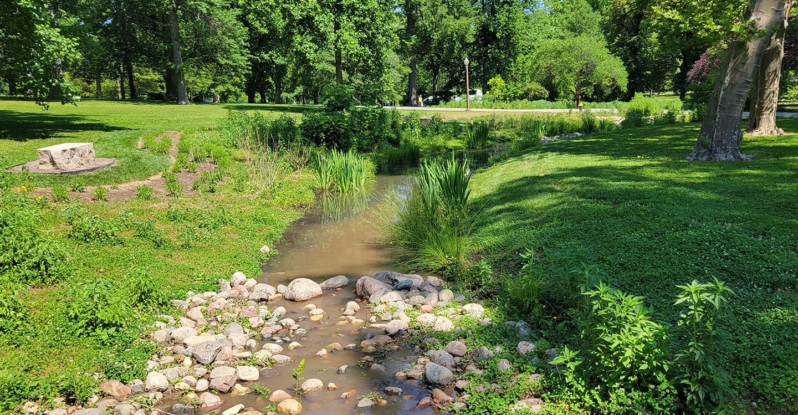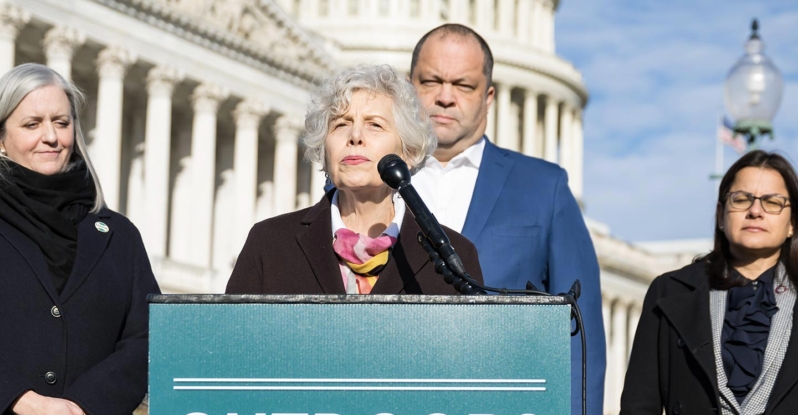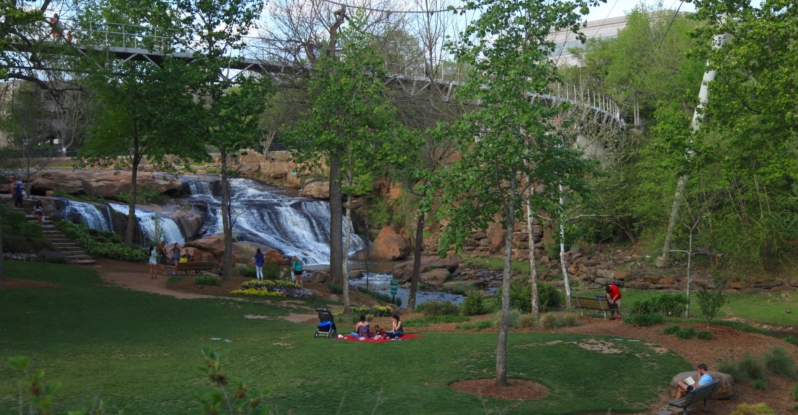This blog post was originally published on Let’s Talk Philanthropy: a blog by Philanthropy Ohio.
By definition, public space is a social space that is open and accessible to people. Streets, public squares, plazas, parks, and beaches are examples of public spaces. These spaces are a social utility or public good because they:
- Promote democracy, inclusion, and social cohesion by allowing people from various socio-economic backgrounds to share common ground to celebrate, recreate, to remember, to reflect, or protest.
- Define a city or neighborhood: think Golden Gate Park, Public Square, Washington Square Park – the spaces are reflections of the values, culture, and history of a place. Ditto with the simple neighborhood park.
- Promote active living: when people live close to a park or trail, they walk more.
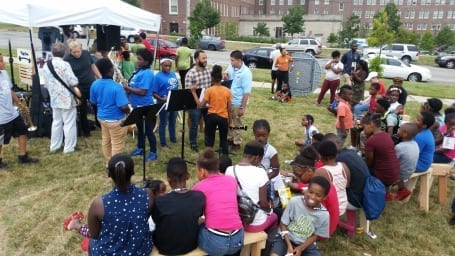
These are just a few reasons that drove the Saint Luke’s Foundation and Philanthropy Ohio to form the Public Space Community of Practice. The members represent the full spectrum of public space work from funding, research, land disposition, land acquisition, planning, design, and programming. The goal of the group is broad but simple: to reflect and learn from the multiple efforts happening in Cleveland around public spaces.
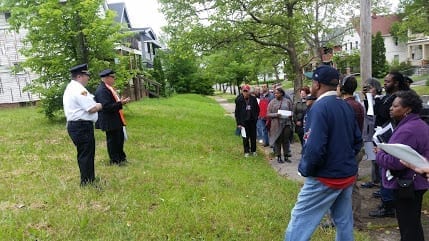
We opened our first gathering with this check in question: “Public spaces are important because____.” From there, we did some context setting, framing, and highlighted public space efforts happening at various scales and across sectors, from a memorial pocket in honor of a police officer – Derrick Owens – killed in the line of duty, to a large-scale intergenerational playscape. We also gave a sneak preview of the landmark research effort – the National Neighborhood Park Study – conducted by City Parks Alliance, the National Institute for Health and the RAND Corporation.
Stay tuned for more information and/or opt-in for one of the few remaining seats available on the Philanthropy Forward ‘17 “Why Parks Matter” learning tour where we will explore parks and public spaces that work and those that could better serve their nearby residents.
I challenge foundation staff and board to reflect on how our work (regardless of the type of funding priorities/focus) touches on or is influenced by public spaces. As a member of society, take a moment to think about the value you, your family, or neighbors get from the public spaces. Discuss.
 About the Author
About the Author
Nelson Beckford is the program director for neighborhood revitalization & engagement at the Cleveland Foundation and a passionate advocate for public spaces that build community.

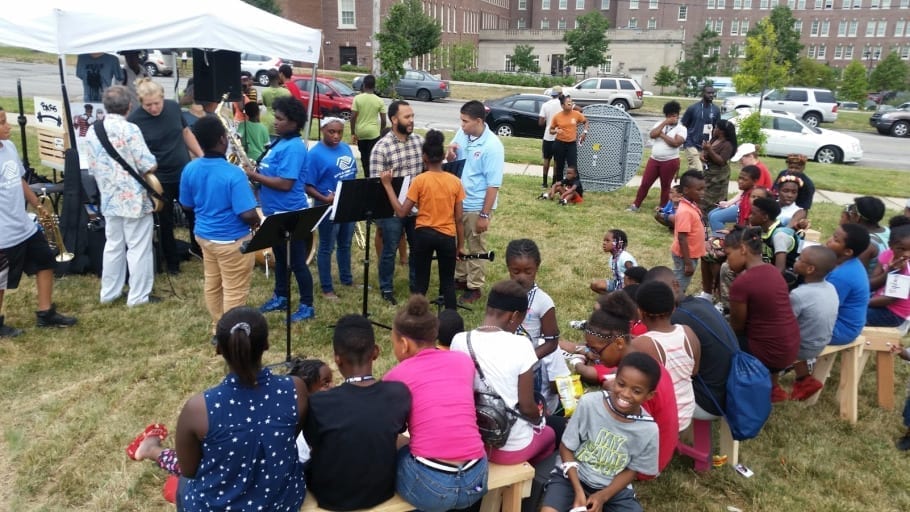
 About the Author
About the Author